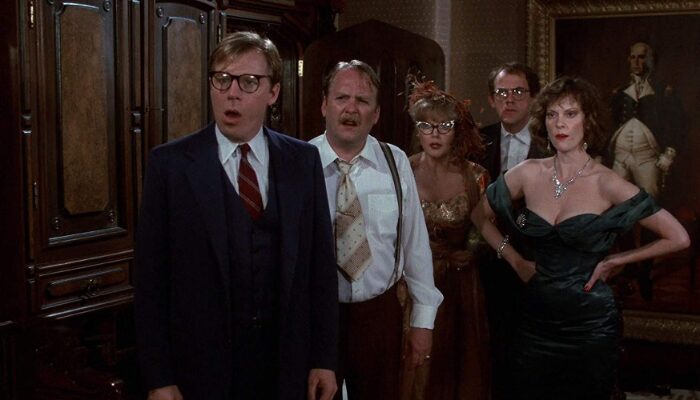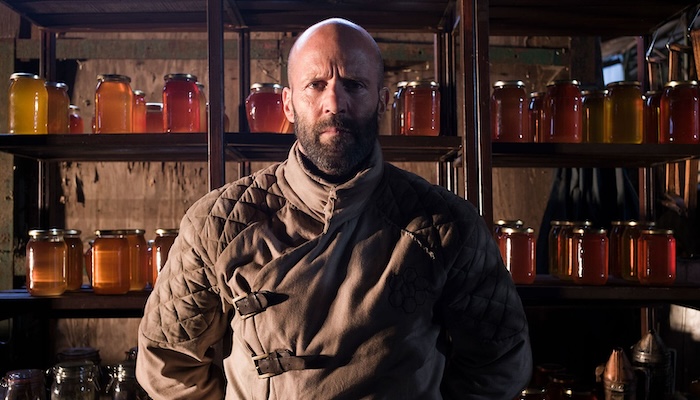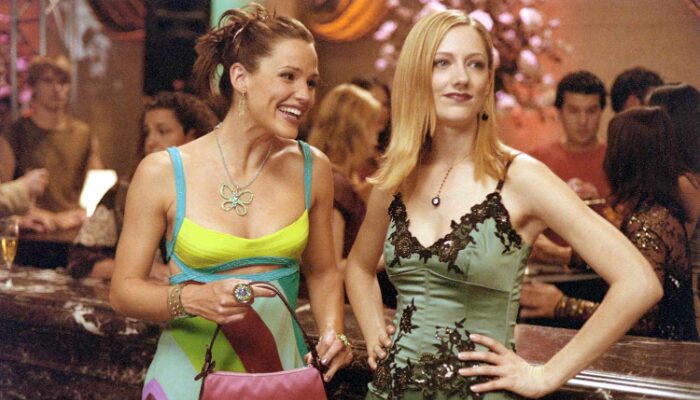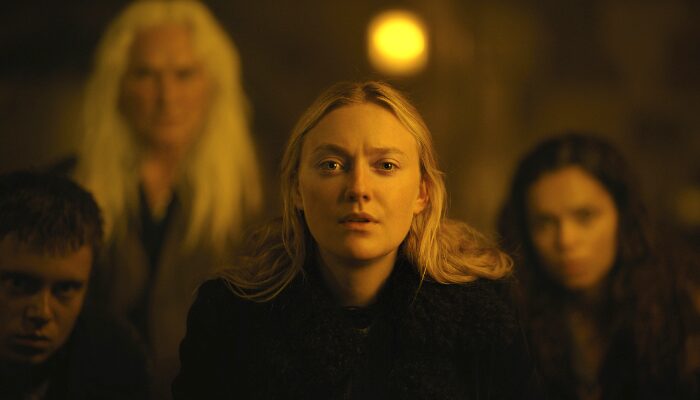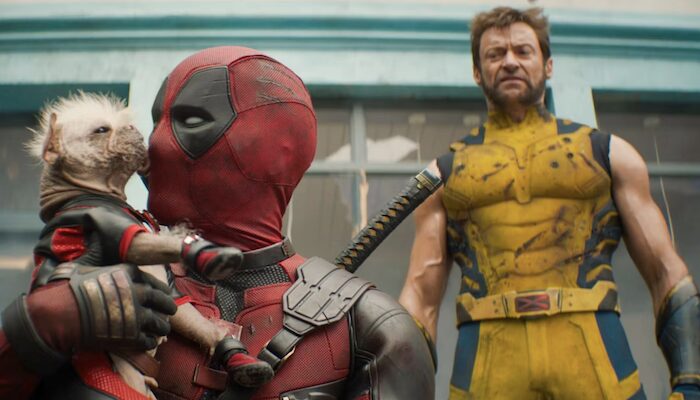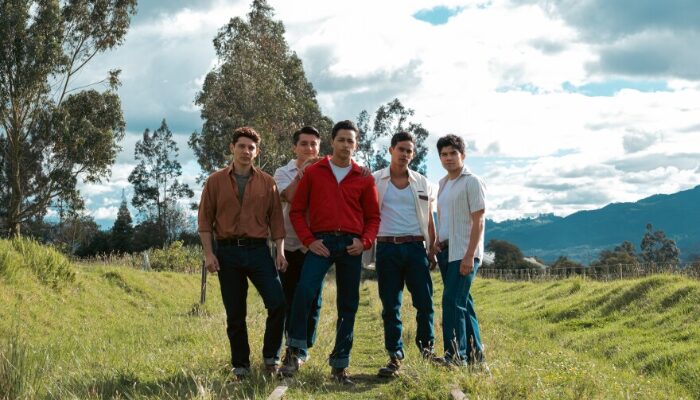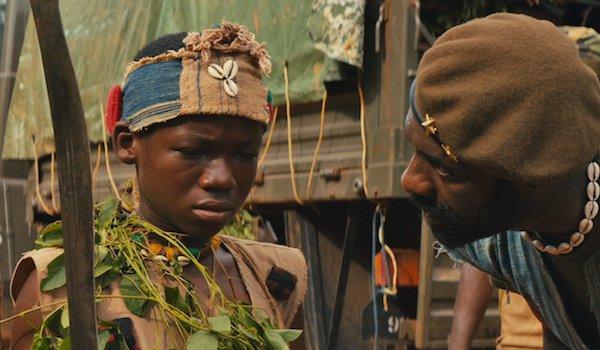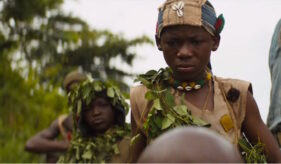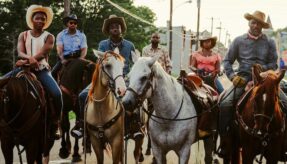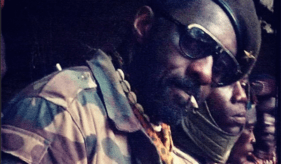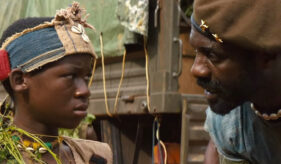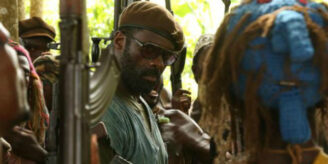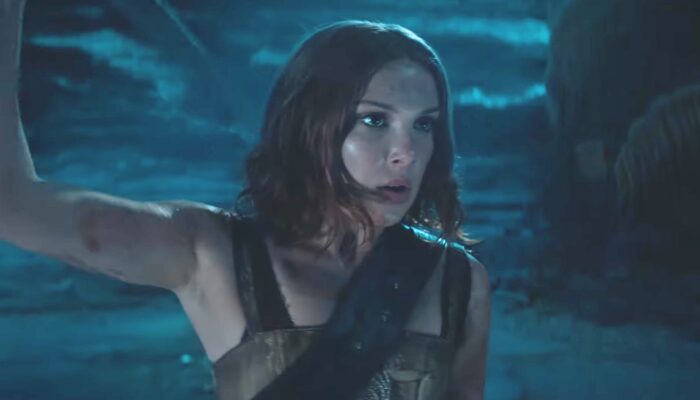Film Review: BEASTS OF NO NATION (2015): Dynamic Performances, Strong Arcs, & Good Direction
Beasts of No Nation Review
Beasts of No Nation (2015) Film Review, a movie directed by Cary Fukunaga, and starring Opeyemi Fagbohungbe, Richard Pepple, Idris Elba, Ama Abebrese, Emmanuel Nii Adom Quaye, and Abraham Attah.
Beasts of No Nation was a lengthy character study of a young boy, who through his proximity to warfare and its tragedies, was recruited and transformed into a soldier.
Like a hero starting at zero or one being reborn, after the first half of Beasts of No Nation, the film’s central character Agu (Abraham Attah) had nothing. He had lost everything and had no means to get back to those he still had.
Who he was, the family that he’s had, and the happiness that he’d enjoyed had evaporated. That family and that happiness had been shown to the viewer to elaborate on what Agu would eventually be without. That fresh, bleeding hole in Agu’s heart, in his being, the NDF militia, Strika, and the Commandant eventually came to fill.
As that occurred, Agu slowly became a soldier then a veteran of armed combat, exiling the person that he used to be to an inaudible and unnoticed corner of his mind.
It was impressive, during Beasts of No Nation, how the Commandant (Idris Elba) sold becoming a soldier to Agu, most-likely referencing a well-rehearsed script.
When watching previous war films with militias, the militias were usually already formed. They were a ragtag organism that had already learned to move as one. In Beasts of No Nation, the viewer watched a militia recruit trained from scratch and evolve into a ruthless killer. The viewer saw Agu taught how to hold a weapon, move it as he moved, and maintain his weapon.
When Agu met Strika (Emmanuel Nii Adom Quaye), Agu and the viewer thought the boy was a mute. It may have been the horrors of war and the Commandant, grotesqueries Agu came to know intimately, that had stolen Strika’s ability or need to speak. Those ordeals may have made Strika deal with the world and ponder the significance of all that had happened in silence.
The NDF militia became Agu surrogate family, with the Commandant as the father, the Lieutenant as the uncle, and Strika as Agu’s new brother.
Unlike his previous family, Agu’s militia family was warped. With a narcissistic pedophile for a father and brothers that had no regard for the rules of war or human life, Agu began to exhibit many of the same amoral traits, especially killing with no compunction or hesitation, whether the target was innocent or guilt. When ordered by the Commandant, Agu eventually killed upon command.
The Commandant was a collection of characteristics bound together by oodles of charisma. He was like the villain The Governor from The Walking Dead. Both men were not intentionally evil yet were covertly so in the beginning before others saw them for what they were and recoiled. Almost everything that the Commandant did in Beasts of No Nation was for his own aggrandizement and the aggrandizement of his creation, his NDF militia battalion. When NDF high command demoted the Commandant (presumably because of his battalion’s insalubrious war theater conduct), he haphazardly began destroying the very things that he had created.
A brief aside regarding the Commandant’s promotion: Did the Commandant really think his battalion’s war crimes would go unnoticed? When you let people escape, when you leave living witnesses to your atrocities, they will report on you and tell their stories to those that will listen.
The reason the NDF probably tolerated the Commandant for as long as they did was because of his ability to recruit, train, and inspire soldiers. Watching the Commandant galvanize his troops before entering an active urban battlefield was Idris Elba’s greatest acting moment in Beasts of No Nation.
It was one of those moments when the actor feels the character so much that on-screen, the actor disappears. It’s rare but when it happens, its magic i.e. when Heath Leger became The Joker and the viewer thought “I had no idea he was this good.”
Elba’s disappearing act / character creation wasn’t as profound as Ledger’s because the viewer saw previous evidence of Elba’s high acting ability. Few saw that ability in Ledger. They had no idea that Ledger could create a character that magnetic, a villain that stole every scene he was in until they saw his The Joker. Elba’s Commandant, on the other hand, was in-line with Elba’s evidenced acting ability, a vivacious, real-world villain and thus far more horrifying.
One of the Commandant’s most horrific acts in Beasts of No Nation was the twisting of innocence by murder. Agu’s machete murder was not horrific because of the instrument used. It was horrific because of the person holding the machete and what that murder created. The murder of the civilian man was a barrier-breaker, one all the child soldiers of the Commandant’s militia most-likely had been forced to endure as part of their military initiation.
Like a small boy encouraged to ride a bike with training wheels for the first time, the Commandant, the new authority figure in his life, encouraged Agu on his first kill while watching the proceedings with near ambivalence.
When Agu, without prompting or command, picked up and carried injured Strika in the third act of Beasts of No Nation, Agu’s transformation into a soldier was complete. Agu carried his compatriot, feeling the increasing agony of Strika’s weight but not complaining about it, as he followed his trusted leader into hell.
The loss of Agu’s closest friend showed the increasing fallacy of the Commandant’s leadership. His selfless, unauthorized decision led them all, including Strika, to that moment in their lives. It was the beginning of the erosion of the battalion’s trust in the Commandant. It was the moment where they began to see the Commandant for what he really was and always had been.
At the end of the third act of Beasts of No Nation, as Agu sat in a chair, staring at his inquisitor over a gulf of experiences including the fall of the Commandant, Agu was the epitome of the phrase “an odd soul in a young body.” The inquisitor wanted Agu to tell her about experiences that she had never had or could not relate to. The viewer could see this understanding, this contempt on Agu’s face as he pondered her request from his vantage point on the gulf between the two of them.
Agu stared at her with the eyes and countenance of a war veteran who was looking upon a civilian. An old man, a soldier, and a killer was staring out of the eyes of young Agu. Though the inquisitor was in her thirties and Agu was barely a teen, it was the inquisitor who was the youngest person in the room.
This scene was Abraham Attah’s greatest acting moment in Beasts of No Nation, a moment that spoke volumes about the long road that Agu had traversed. I wouldn’t be surprised if Attah is nominated for multiple awards for his performance in this film.
Rating: 10/10
Leave your thoughts on this Beasts of No Nation review and the film below in the comments section. Readers seeking more film reviews can visit our Movie Review Page, our Movie Review Facebook Page, and our Movie Review Google+ Page. Want up-to-the-minute notifications? FilmBook staff members publish articles by Email, Twitter, Tumblr, Google+, and Facebook.
Related Articles
FilmBook's Newsletter
Subscribe to FilmBook’s Daily Newsletter for the latest news!

